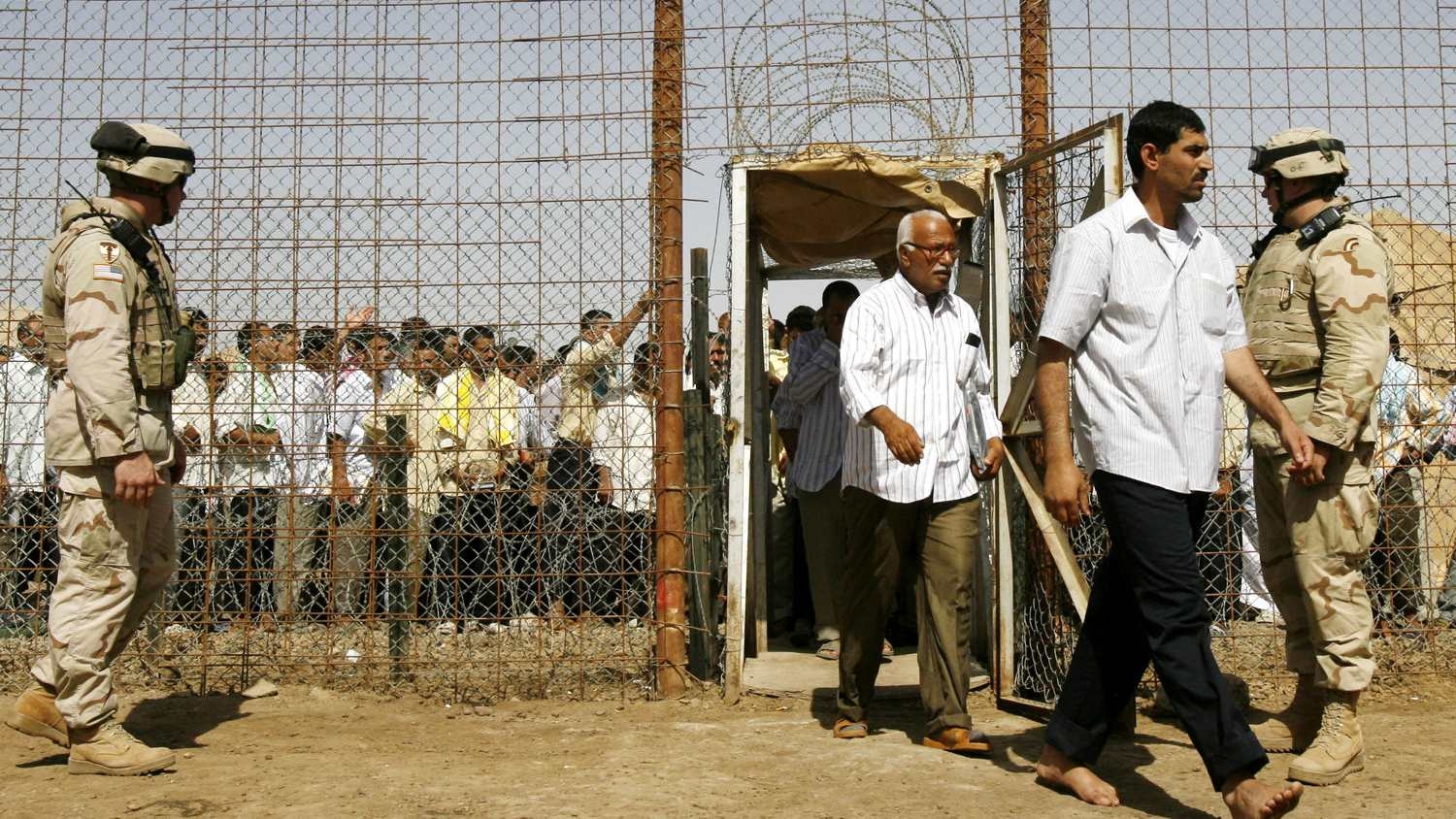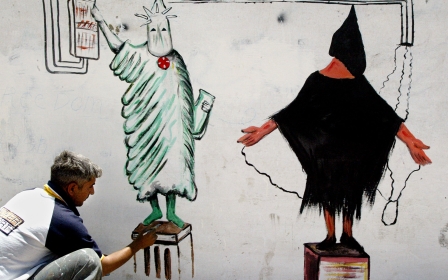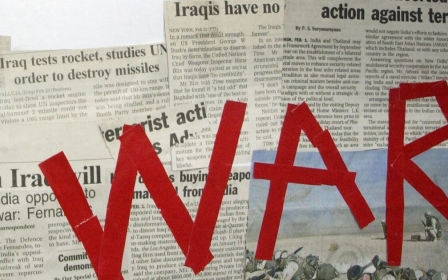US has failed to compensate Iraqi victims of torture, says rights group

The United States government has failed to compensate the Iraqi victims of torture at Abu Ghraib and other US-run prisons in Iraq, Human Rights Watch said in a new report on Monday.
HRW said in its report that it reached out to the US Department of Defence in June, requesting information regarding compensation for torture survivors in Iraq. It received no response.
The George W Bush administration told US Congress that any Iraqis who suffered "grievous and brutal abuse cruelty at the hands of a few members of the United States armed forces" would be eligible for compensation. However, that recompense never materalised, according to Monday's report.
"Twenty years on, Iraqis who were tortured by US personnel still have no clear path for filing a claim or receiving any kind of redress or recognition from the US government," Sarah Yager, HRW's Washington director, said in a statement.
"US officials have indicated that they prefer to leave torture in the past, but the long-term effects of torture are still a daily reality for many Iraqis and their families."
New MEE newsletter: Jerusalem Dispatch
Sign up to get the latest insights and analysis on Israel-Palestine, alongside Turkey Unpacked and other MEE newsletters
The rights group documented the case of Taleb al-Majli, an Iraqi citizen who said that he was tortured by US forces after being detained at Abu Ghraib prison in November 2003. He was released without charge in 2005.
Documents reviewed by HRW confirmed Majli's detention at the notorious prison, and the former detainee said he has sought every legal avenue possible to receive justice for the abuse he suffered.
"This one year and four months changed my entire being for the worse. It destroyed me and destroyed my family. It’s the reason for my son’s health problems and the reasons my daughters dropped out of school. They stole our future from us," Majli told the rights group.
"I didn’t know what else I could do or where else to go."
HRW said it was not able to find any legal pathway for Majli.
'US should provide compensation and apology'
The harsh treatment of prisoners held by US forces during the Iraq war at the Abu Ghraib facility became a scandal during former President George W Bush's administration, after pictures of the abuse emerged in 2004 at a time when the prison held 6,000 inmates.
Detainees endured physical, psychological and sexual abuse, including the use of electric shock and mock executions.
Some victims tried using the US Foreign Claims Act to petition for compensation. The law states that foreign nations are able to obtain recompense for death or injury from "noncombat activity or a negligent or wrongful act".
However, the law includes a clause that says any claims are rendered ineligible if the harm came from "US forces engaged in armed conflict or in immediate preparation for impending armed conflict".
“If any of the survivors received a payment, I would doubt the Army would have wanted to use Foreign Claims Act money because it could be interpreted as an admission on the government's part,” Jonathan Tracy, a former judge advocate who handled claims of harm in Baghdad in 2003, told HRW.
Yager said the US government should be the ones investigating all allegations of torture against Washington during its wars abroad.
"US authorities should initiate appropriate prosecutions against anyone implicated, whatever their rank or position. The US should provide compensation, recognition, and official apologies to survivors of abuse and their families," Yager said.
The only legal pathway that the report said seemed possible was to sue US defence contractors involved in the US invasion of Iraq. Earlier this year, Middle East Eye spoke to Iraqi national, Salah al-Ejaili, who has taken this legal pathway.
Ejaili has been fighting a legal battle in the US courts for 15 years. He is one of four Iraqis who filed a lawsuit in 2008 against the private military contractor Caci, accusing the company of being involved in the torture that took place there. The lawsuit cites the Alien Tort Statute, a law passed in 1789 that gives American courts jurisdiction over cases involving violations of international law.
The war in Iraq was run in part by private military contractors. In 2004, there were 15,000 private contractors working in Iraq for the US military, ranging from small firms that provided commandos for hire to giant corporations responsible for maintaining the military's supply chains.
Middle East Eye delivers independent and unrivalled coverage and analysis of the Middle East, North Africa and beyond. To learn more about republishing this content and the associated fees, please fill out this form. More about MEE can be found here.





